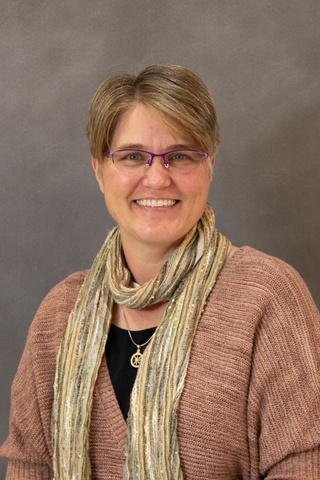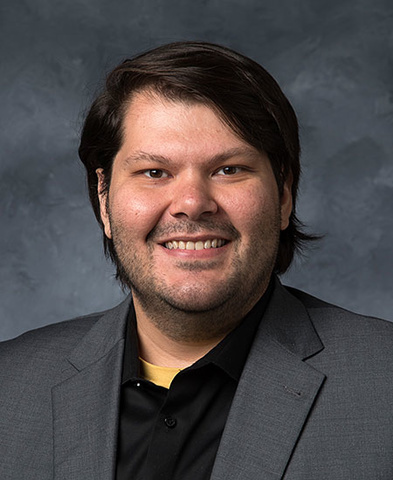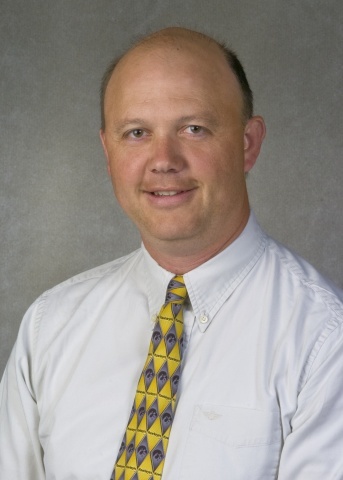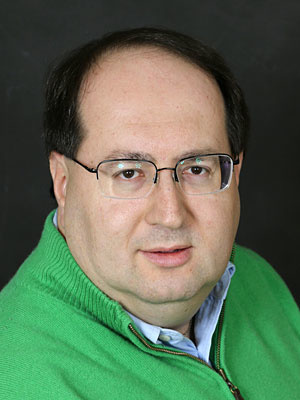A multidisciplinary cohort of University of Iowa engineering faculty will contribute to a $20 million, multi-institutional National Science Foundation (NSF) project to boost Iowa’s position as a leader in bioscience and advanced manufacturing.
Seven UI College of Engineering faculty members are on the team of 43 participants from Iowa’s three regent universities, Central College, and Dordt University, including 16 from UI. The project is intended to build research capacity, secure infrastructure, and train a skilled advanced biomanufacturing workforce.
Hongtao Ding, associate professor of mechanical engineering, served as UI's representative on the grant proposal committee. Working on the proposal for more than a year, Ding served as topic leader for advanced manufacturing, one of the two primary pillars of this initiative. Biomaterials is the second pillar.
"Collaborating with a diverse team from the university's College of Engineering, each member contributed unique expertise and backgrounds, resulting in comprehensive contributions to the proposal," Ding said. "This collective endeavor not only secured a one-year planning grant for the EPSCoR project but also culminated in the submission of the $20 million grant proposal in July 2022, which subsequently secured funding in August 2023."
UI engineering professors come from the Departments of Chemical and Biochemical Engineering, Industrial and Systems Engineering, Mechanical Engineering, and the Roy J. Carver Department of Biomedical Engineering. The professors are involved in various aspects of the large project.
|
| Hongtao Ding, associate professor of mechanical engineering, will investigate the fundamental surface and manufacturing properties of parts fabricated using additive manufacturing (AM) processes, with a particular emphasis on the utilization of biomaterials as feedstock. The hope is to elevate the surface properties of 3D-printed components, a critical determinant of their overall performance across diverse AM applications and advance the manufacturability of high-quality bioproducts derived from bio-derived materials. |

| Jennifer Fiegel, professor of chemical and biochemical engineering, will oversee the microbial-based cell product project and the maintenance of safe conditions for biosafety level 2 studies. Fiegel will mentor a graduate research assistant in the Proteins for Diagnostics and Therapeutics focus area of the project and collaborate with UI’s High Throughput Screening Facility, the Center for Biocatalysis and Bioprocessing, and protein therapeutic and machine learning experts at Iowa State University to develop the technology |

| Joe Gomes, assistant professor chemical and biochemical engineering, will work to optimize feedback between protein discovery and protein production and model protein-protein interactions using molecular simulations. |

| C. Allan Guymon, Sharon K. Tinker Process Safety Professor of Chemical and Biochemical Engineering, is a co-lead of the Plastics for Additive Manufacturing (PAM) thrust of the project. Guymon will also have a direct research role, developing bio-produced monomers for photo-induced additive manufacturing processes. |

| Albert Ratner, professor of mechanical engineering, will work in the Plastics for Additive Manufacturing focus area to improve bio-plastic and bio-resin properties, particularly viscosity evolution during photopolymerization. Ratner will also work to improve nanocellulose utilization by developing a better way to model and control structure formation during evaporation through computer modeling. |
|
| Xuan Song, associate professor of industrial and systems engineering and James A. Chisman Faculty Fellow, will study additive manufacturing of biocomposites by integrating bio-derived polymers with bio-derived fibers. He will collaborate with other team members to investigate the relationships between processing parameters, bio-derived material formulation, and physical properties of printed biocomposites. |

| Kristan Worthington, associate professor of biomedical engineering, will lead the design and implementation of activities in phase two of the Plastics for Additive Manufacturing project group in collaboration with Guymon. Worthington will also coordinate team meetings and lead related proposal and manuscript preparation activities within the Plastics for Additive Manufacturing research group. She will supervise and mentor a graduate research assistant, collaborate with Ratner, and providing feedback and guidance as needed. |
Ding, Fiegel, Gomes, Ratner, and Song are also members of the Iowa Technology Institute. The project entitled, “Building Capacity Across Iowa to Meet Human Needs from Things That Grow,” was recently announced as one of six new EPSCoR projects by the National Science Foundation (NSF) to advance scientific progress and elevate discovery nationwide. EPSCoR stands for Established Program to Stimulate Competitive Research.
Chemurgy 2.0 is the shorthand name for the project. George Washington Carver – Iowa State University’s first African American student and faculty member – coined the term to describe the use of applied chemistry to produce industrial products from agricultural materials.
Researchers will build on the state’s reputation as a hub for the biosciences, with a goal of accelerating the commercialization of bio-derived products with societal and health benefits. This includes plastics for additive manufacturing, fibers for flexible and rigid materials, and proteins for diagnostics and therapeutics.
Learn more:
Iowa universities and colleges partner to bolster advanced biomanufacturing in the state
UI joins statewide initiative to make Iowa a national leader in biomanufacturing
